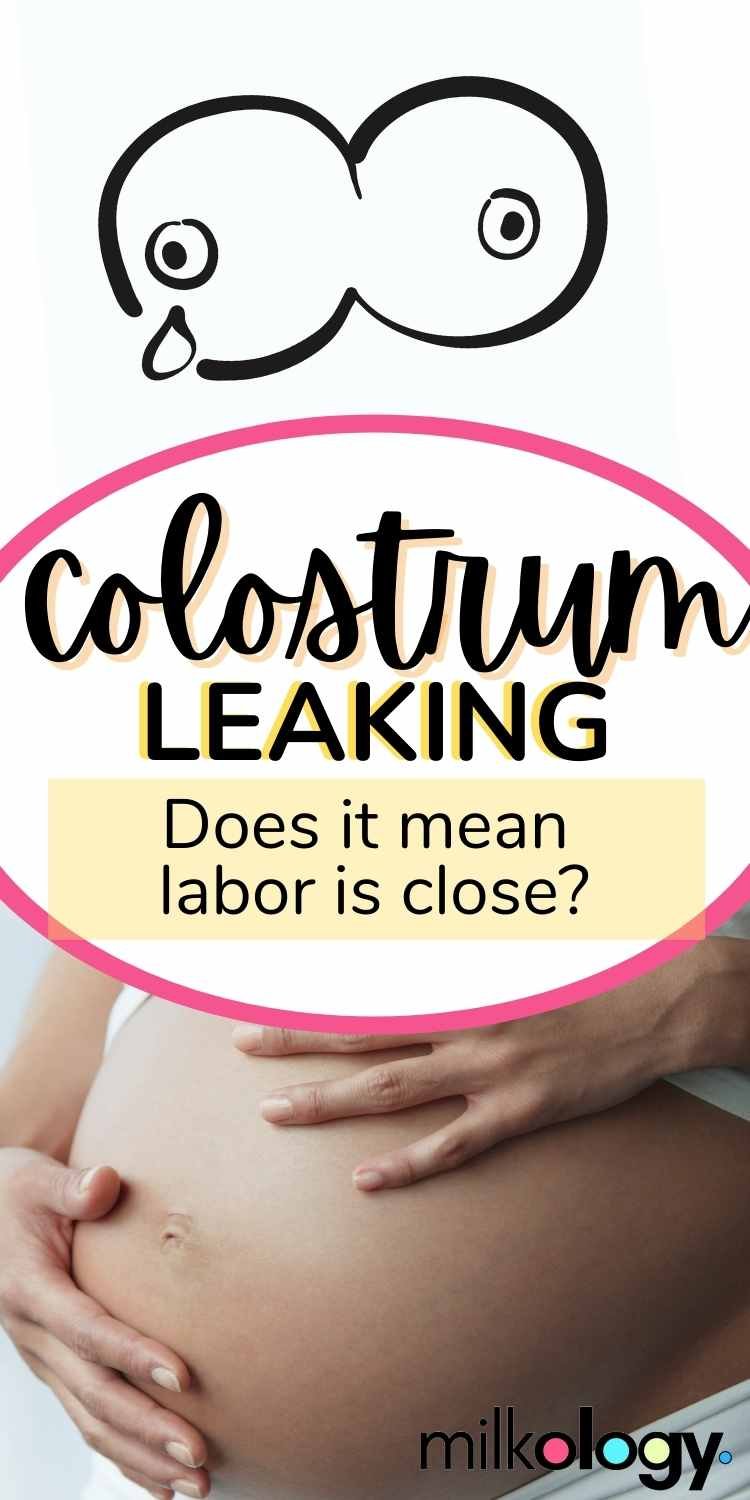Does Leaking Colostrum Mean Labor Is Close?
Your breasts begin to produce colostrum as early as the 2nd trimester of pregnancy.
They begin early production so your body will be ready to feed your newborn. (even if they arrive earlier than expected!)
You might leak colostrum at some point during pregnancy and wonder if this is normal. Or if it means labor is close. Let’s find out!
(this post may contain affiliate links)
It’s a GREAT idea to take a simple and affordable breastfeeding class. Breastfeeding is something you need to LEARN to do. The Ultimate Breastfeeding Class is on-demand and perfect for new moms.
Is it Normal To Leak Colostrum During Pregnancy?
Yes, It’s completely normal to leak colostrum during pregnancy. It means your milk making hormones are in action, prepping for the big day!
And as your pregnancy progresses, leaking colostrum becomes even more likely because your hormones ramp up in the 3rd trimester.
Does leaking colostrum mean labor is close?
No. It doesn’t mean labor is imminent. Leaking colostrum simply means your body is ready to feed baby.
NOTE:
While leaking colostrum during pregnancy is common, not all women leak.
Actual Signs That Labor May Be Close:
Increased Urination
Nesting
Back Pain
Pink Discharge (aka Bloody Show)
Changes In Baby Movement
Loose Joints
Dropping or “Lightening”
Fatigue
Diarrhea
Vaginal Discharge
Water Breaking
Want to collect colostrum before birth to store up for baby?
If so, antenatal milk expression may be helpful — it’s the act of hand expressing colostrum once or twice daily starting around 36-37 weeks of pregnancy.
NOTE: Please consult with your doctor, midwife or lactation consultant before beginning antenatal hand expression. For those on pelvic rest or who have a high risk pregnancy, antenatal hand expression may be discouraged by your healthcare provider.
Antenatal expression may be encouraged for women who have:
▪️experienced previous low milk supply
▪️breast hypoplasia (limited breast development)
▪️polycystic ovary syndrome
▪️had previous breast surgery
▪️experienced diabetes in pregnancy (gestational diabetes)
Or for babies:
▪️with a cleft lip and/or palate identified during pregnancy
▪️with congenital conditions such as Down syndrome or cardiac complications
▪️diagnosed with intrauterine growth restriction
▪️who are born prematurely
You can express colostrum drops into a spoon and then use a small syringe to draw up the milk. The syringe can then be frozen and administered after baby is born, if supplementation is needed.
Our 3 Fav Breastfeeding Products
1. 🌙 The night nursing bra you’ll never want to take off
This nursing bra is the absolute BEST for breastfeeding at night. It’s made of the softest material ever. It’s super stretchy with zero digging.
2. 🤱Sore nipples?
If your nipples are sore at all, these are a total game-changer. Pop them on after feeds and let them work. They heal in a matter of hours and you just pop them on after feeding. Wear them 24/7 in the early days.
3. 🍪 Breastfeeding hunger is real
Easy-bake cookies with oats, flax, brewer’s yeast (+ chocolate!) to help support your milk supply and satisfy cravings. Warm, fast, and ridiculously good.
Related post: How To Hand Express Colostrum


